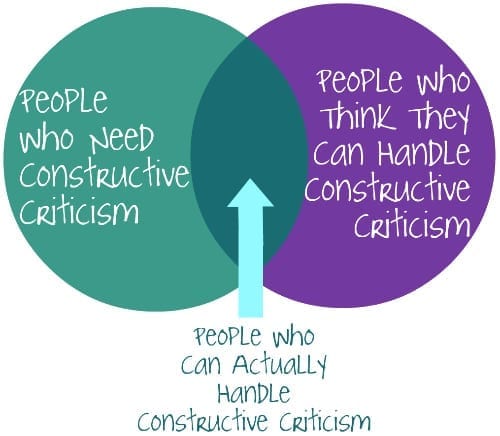And then this happens...
You're crushed.
You may be angry or defensive.
You're upset, to say the least.
And all of those feelings are okay. They're a natural reaction to being hurt.
You need a hug.
Maybe two.
Don't be ashamed of feeling hurt. It's only natural. But you can channel it into something constructive. Find a story you like and write a review that says all the kind things you wish the reviewer would have said to you.You can't help how you feel, but you are the one who decides how you'll react to it.
Once you've dealt with your emotional reaction, it's time to think about what the criticism means for you as a writer.
The first thing to determine is whether the criticism was constructive or not. Even if harshly worded, criticism may contain valuable information which will make you a better writer. Is there anything that you can take from the comment that you can use as a basis for improvement? Did they point out a plot hole you need to address? An action which seems out-of-character for one of your protagonists that may need more explanation? Grammar or spelling issues? All of these things can be fixed, but we need to be aware of them in order to do so.
 |
| I'm sort of working on that, myself. |
Readers often have an emotional investment in a story. In that respect, angry comments can be interpreted as a sort of compliment because it means you have managed to touch the reader on an emotional level. Fanfiction authors have an unusual burden in this area, because they are already dealing with familiar characters that might have their own emotional baggage, such as readers being "prepared" to hate Tanya or Jacob in Twilight fanfiction, so some of their reaction may be brought with them from earlier works that they've read.
So, what do you do when you get a scathing review or mean comment? As I wrote earlier, the important thing is how we choose to react to criticism, both constructive and non-constructive. If you must respond, be polite. Don't fire back, or try to argue with the critic. It's futile and it only makes you look bad.
Having been a recipient of criticism, it has made me more cautious when dispensing it. That doesn't mean you have to be nothing-but-positive when reviewing a story, but always keep in mind that there's a person just like you on the other end who may be hurt by your words. So choose wisely.
Many people suggest using the "sandwich" technique when dispensing criticism. Praise what you liked about the story, then make suggestion which might help the author improve, and end on a complimentary note.
After all ...





You've summed up what I've been saying for years, so the next time a writer needs a hug, I'm going to link them to this article. Thanks for posting!
ReplyDeleteYou bring up an excellent point: this post needed a hug included in it.
DeleteGreat, great, great article!
ReplyDeleteCongrats,
- Raum
LOVE IT! Does it apply to kids?
ReplyDeleteIf you mean, do you apply the same technique to a child's work, I believe so. Every child I have ever known has reacted better to criticism if it was given in the midst of a healthy helping of enthusiastic encouragement and praise. That doesn't mean every bit of work they deliver should be lauded as a magnum opus; kids have a built-in BS detector and they know when they haven't put their best effort into something. You want your praise to be meaningful and it only can be if it's sincere.
Delete